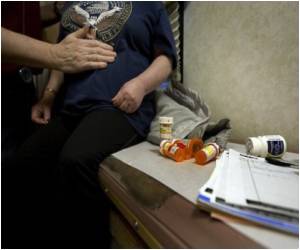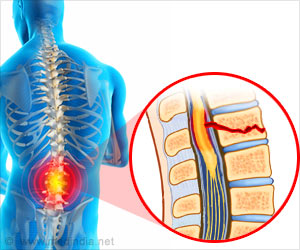Lumbar spinal stenosis is a condition of the narrowing of the spinal canal due to degeneration of both the facet joints and the inter-vertebral discs.

‘If an exercise is particularly difficult, one should try exercising in a pool. The buoyancy of the water makes it easier to move and get full range of motion.’





Lumbar spinal stenosis is a condition of the narrowing of the spinal canal due to degeneration of both the facet joints and the inter-vertebral discs which causes pressure on the spinal cord and nerves. The condition can be cured by non-surgical procedures if detected at an early stage. After two years, when Shandilya decided to visit a doctor, he was asked to undergo Magnetic Resonance Imaging (MRI) test which clearly detected that he had developed lumbar spinal stenosis. He was told that the ailment was in its advanced stage and only a surgery could cure him.
On the advice of doctors, Shandilya underwent a Microdecompression Laminaplasty -- a minimally invasive procedure -- which was performed through a tubular device that was designed to relieve pain caused by herniated discs pressing on nerve roots.
About 75 per cent of spinal stenosis cases occur in the lower back (lumbar spine). In most cases, the narrowing of the spine causes pain, heaviness, tingling-numbness in the legs for longer durations.
According to Satnam Singh Chhabra, Head of Neuro and Spine department at Sir Ganga Ram Hospital, the advantages of Microdecompression Laminaplasty are that it involves less scars, causes no trauma to muscle or bone and also preserves the contours of the back.
Advertisement
Thirty minutes of exercises at least three times a week must be done to strengthen back muscles. "If an exercise is particularly difficult, one should try exercising in a pool. The buoyancy of the water makes it easier to move and get full range of motion," said Chhabra.













